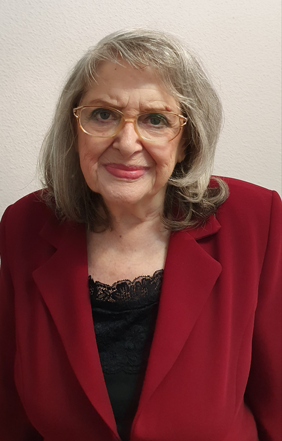The Japan Foundation Award 50th Anniversary Messages from Previous Awardees - Angela HONDRU

2008 The Japan Foundation Award
Honorary Professor of Hyperion University / Translator
Angela HONDRU
[Romania]
A Japanese spiritual weapon to fight the COVID-19 pandemic effect
First of all, I would like to express my everlasting gratitude for the Japan Foundation award I was granted in 2008.
When it comes to pandemic, most people are concerned with economic depression, financial instability and many troubles of all kinds. But we are cultural beings and require culture to make life worth living. And we are spiritual beings, psychically connected to our world. That is why we can somehow fight in times of adversities. And the Japanese do it in a wonderful way because ancient traditions nourish their hearts, being deeply ingrained in their souls.
As a two-time former Japan Foundation fellow to study folk observances (matsuri and kagura), I made field work trips to several prefectures of Japan and lived the rituals together with the Japanese. I consider it necessary to emphasize that Japan’s is not a tradition fettered in any obsolete time-frame, but a living tradition to which each generation came to add a distinctive feature through an intensely creative and emotional participation. Such folk observances belong to the touching rhythms of the Japanese life; they are the heartbeats without which the heart of Japan would beat differently.
If the purpose of the pandemic initiators is to destroy the true heart, I am sure the Japanese will find some modern way (Online, Zoom, Skype, etc.) to replace the obsolete one used during the WW II when, in order to be safe during bombing, the organizers of Okumikawa Kagura in Aichi prefecture, for instance, covered the windows with straw mats. They could not imagine life without it. As to modern technology, I wish that nobody should have to resort only to it, because people to people communication is essential in the context of promoting mutual international understanding.
Angela Hondru
(Original text in English)
- What We Do Top
- Arts and Cultural Exchange [Culture]
- Japanese-Language Education Overseas [Language]
- Japanese-Language Education Overseas [Language] Top
- Learn Japanese-language
- Teach Japanese-language
- Take Japanese-Language Test
- Know about Japanese-language education abroad
- The Japanese-Language Institute, Urawa
- The Japanese-Language Institute, Kansai
- Japanese-Language Programs for Foreign Specified Skilled Worker Candidates
- Japanese Language Education for Japanese Children Resident Overseas and for the Descendants of Migrants
- Archives
- Japanese Studies and Global Partnerships [Dialogue]
- JF digital collection
- Other Programs / Programs to Commemorate Exchange Year
- Awards and Prizes
- Publications
